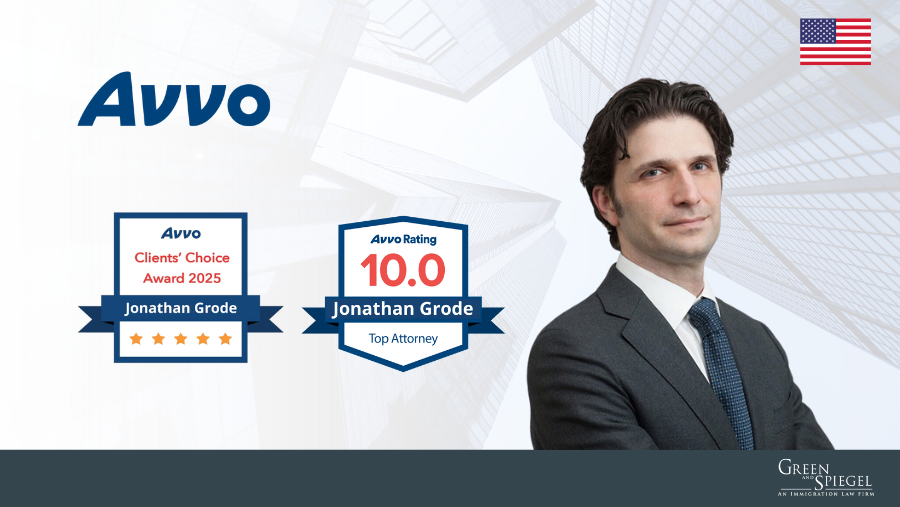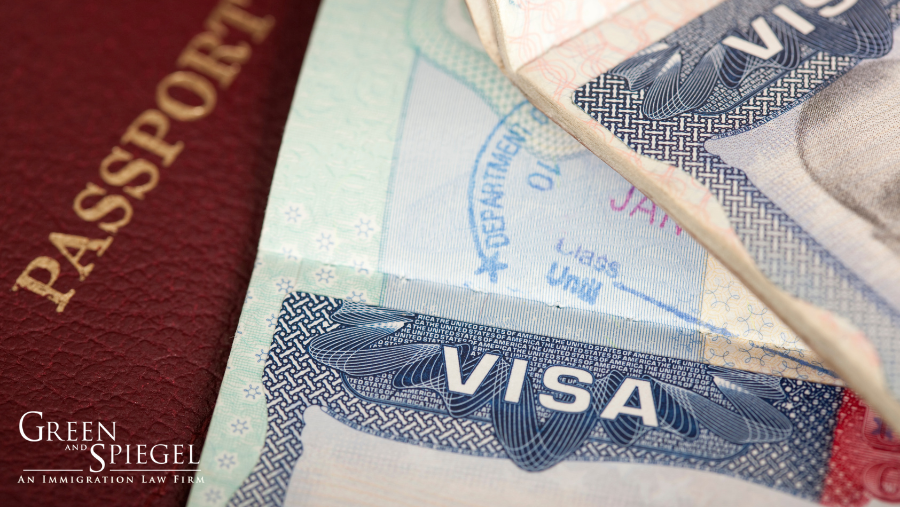Takeaways:
- On March 2, 2021, the U.S. Department of State (DOS) implemented more restrictive policies, generally barring business travelers who have been in Ireland, the Schengen Area, and the U.K.
- Obtaining National Interest Exceptions (“NIE”) to those travel restrictions is likely to be far more difficult and time-consuming.
- Quarantining in a third country continues to be a good alternative to applying for an NIE.
Background:
Noncitizens seeking to travel to the United States from Ireland, the Schengen Area, or the U.K. have been subject to travel restrictions since March of 2020. These bars were mitigated by Section 2(a)(xii) of the “Proclamation on the Suspension of Entry as Immigrants and Non-Immigrants of Certain Additional Persons Who Pose a Risk of Transmitting Coronavirus Disease” (“Proclamation”) because it provides a sort of “general waiver” of the travel restrictions for “any noncitizen whose entry would be in the national interest, as determined by the Secretary of State, the Secretary of Homeland Security, or their designees.”
Until recently, obtaining these waivers for business has been a question of establishing that the proposed travel provided significant financial and job creation benefits to the United States. Green and Spiegel has often been able to obtain these National Interest Exceptions to the Proclamation (“NIE”) on behalf of clients. We have helped manufacturers secure technical specialists to install and service equipment; investor clients come to the U.S. to finalize projects, creating hundreds of direct employment jobs and injecting tens of millions in foreign capital to the U.S; and foreign nationals return to homes and family in the U.S. Our clients, both in the U.S. and abroad, have created and sustained businesses, investments, and jobs crucial to U.S. recovery from the economic downturn caused by the pandemic.
However, U.S. Secretary of State Antony J. Blinken placed heavy restrictions on the NIEs on March 2, 2021 which threaten the U.S. economic recovery. Specifically, DOS published the “National Interest Exceptions for Certain Travelers from the Schengen Area, United Kingdom, and Ireland,” directing that NIEs be generally unavailable for international business, and limited only to travel whose purpose furthers U.S. Critical Infrastructure or Significant Job Creation (described in greater detail below). The general effect of these changes is to make business travel far more difficult than it has been at any prior point in the pandemic.
I wish to draw the reader’s attention to our January 26, 2021 post as reference for this piece. Since the March 2, 2021 DOS restrictions do not officially change the Proclamation, I am incorporating that prior explanation into this post. It is important background which, if duplicated here, would lengthen this post without adding clarity. The crucial point is that the Proclamation, through Section 2(a)(xii), made NIEs broadly available to those who could demonstrate significant national interest benefits and the March 2, 2021 restrictions cut businesses off from those remedies to the travel restrictions.
The U.S. Secretary of State Is Bringing Business Travel from Europe to a Halt:
The March 2, 2021 restrictions leave students, both F-1 and M-1 visa holders and applicants, free to travel to the U.S. with automatically granted NIEs. So too, “academics” and “journalists” can apply for NIEs through U.S. embassies and consulates without having to meet the strict standards that businesspeople do. DOS will consider humanitarian, public health response, and national security cases as well and will not subject them to the strict new standards.
However, Noncitizens seeking to enter the U.S. on B-1 visas or Electronic System for Travel Authorization (ESTA) approvals are subject to a “presumptively ineligible” standard. Technical experts and specialists, as well as their senior level managers and executives, are generally barred from receiving NIEs and E-1 Treaty Traders and E-2 Investors, classifications favored for entry to the United States just a week ago, are now generally barred from direct travel to the U.S. or new visa issuance in the affected countries.
The new, far stricter standard being applied is that businesses must demonstrate that the travel provides “vital support for critical infrastructure.” This appears to be a reference to the Department of Homeland Security / Cybersecurity and Infrastructure Security Agency (DHS/CISA) List, covering such things as commercial facilities, energy, and healthcare, among other industries.
Additionally, a Noncitizen may qualify for an NIE if they can demonstrate that the work directly supports the creation or retention of U.S. jobs. Up until March 2, 2021 though, this determination was made by embassy and consular officers, but these same requests now have to go to DOS – Headquarters. Embassies are warning applicants that acceptable cases will be “very rare and the criteria… very stringent.”
These new restrictions make NIE requests more challenging to put together and shepherd through the adjudication process. In addition to showing that the work cannot be done remotely, it is now necessary to demonstrate that the work provides “vital support for critical infrastructure.” Only if the business can meet this threshold will it be able to present its national interest arguments. The farther from a clear, clean fit within those industry definitions the work is, the harder it will be to get DOS to consider the request. Returning to communications with DOS on this matter, they offer this example:
The travel must be directly related to supporting the infrastructure. The examples given in Department guidance differentiate between those that would qualify – inspectors clearing deliveries or specialists who are completing essential components – and those that would not – senior executives traveling to observe operations or hold meetings. The applicant must be able to show why they cannot perform their work from outside of the United States.
Practical Advice:
- If physically present in the U.S. on a business visa or an ESTA, it may be better to remain here and get as much done here as possible before authorized stay expires. It may be that the Noncitizen cannot get an NIE to return in the future.
- If the proposed travel fits within the vital support of critical infrastructure paradigm, more lead-time is going to be necessary to prepare the case. The legal briefs and evidence will be a heavier burden and it is likely that the adjudication will take longer.
- If the proposed travel fits within the creation or retention of U.S. jobs paradigm, we will need substantially more time to craft the request and DOS-headquarters is likely to take considerable time in reaching a decision.
In the alternative, for those with existing visas or those seeking to travel on ESTAs for valid purposes, it may be wise to consider third-country quarantine as a means of avoiding the travel restrictions. The crux of the matter is that the U.S. has accepted the claim that spending two weeks in a resort in Mexico poses little pandemic threat but that two weeks in Switzerland is significant. All-inclusive resorts have responded to this market opportunity by setting up quarantine facilities for businesspeople, complete with ample workspace, on-site entertainment, and COVID-19 testing which facilitates entry to the U.S. Fifteen days in a third country may provide a far more predictable and effective result than applying for an NIE and working remotely from an office overlooking a beach in Cabo, Marrakech, or Antalya may not be the worst way to quarantine.
Conclusion:
Noncitizens who have been in Ireland, the Schengen Area, or the United Kingdom during the fourteen days prior to seeking to enter the United States may be subject to a travel restriction and unable to board a plane to the U.S. Businesses may do well to seek legal assistance in assessing eligibility for a National Interest Exception and framing their request. In the alternative, quarantining in a third country, not covered by a travel restrictions, may provide the means for seeking U.S. admission.
Green and Spiegel, An Immigration Law Firm with Nearly Sixty Years of Experience:
Green and Spiegel has been successful in obtaining NIE Waivers for Noncitizen businesspeople. We are monitoring this situation closely and will continue to update our blog and provide E-Alerts to advise on the latest developments. As always, we strongly encourage you to reach out to our office if you have any questions regarding if or how these changes impact you, your business, and your family. Our office number is (215)395-8959, we can be reached via web.
DISCLAIMER: Please note, nothing posted here is legal advice, nor does reading anything here or communicating with the writer on or through social media form an attorney/client relationship. Choosing an attorney is a serious matter and should not be based solely or primarily on advertising or any other public communication of an attorney or law firm.




